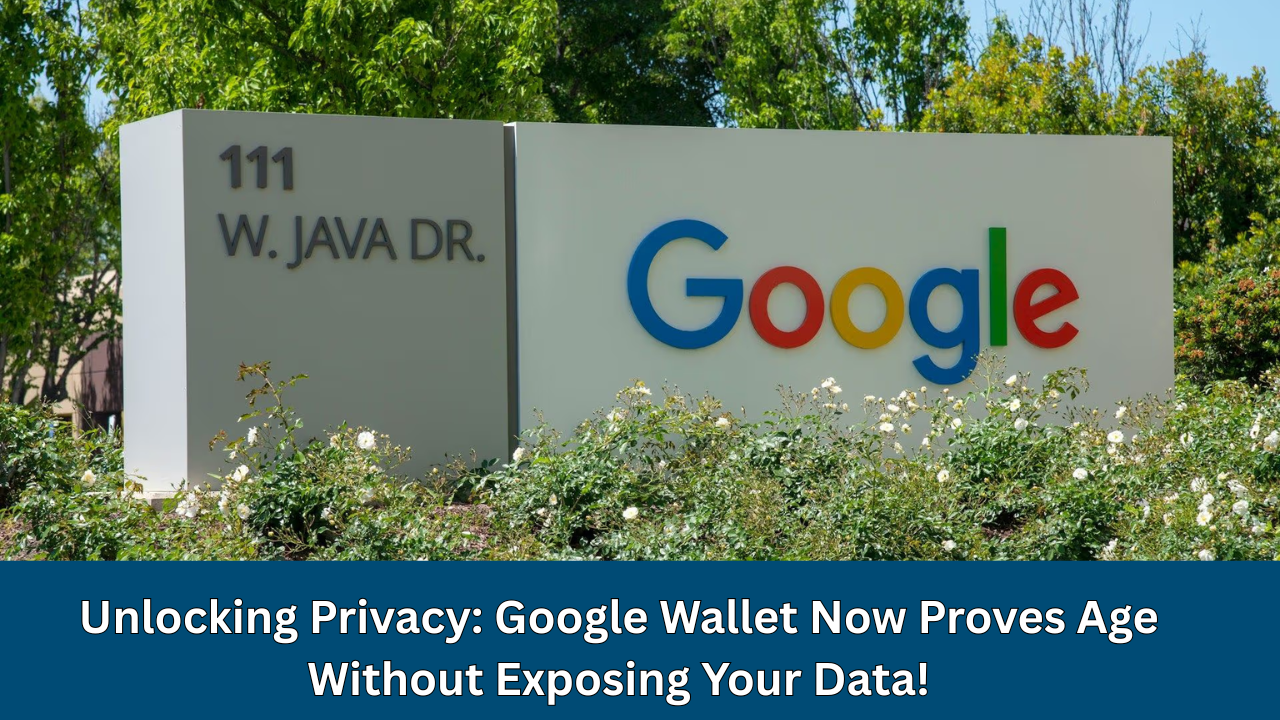Google has introduced a groundbreaking privacy feature in its Wallet service by integrating zero-knowledge proof (ZKP) technology. This new feature enables users to prove their age without revealing their birthdate or any other personal data. Google has partnered with several services, including the popular dating app Bumble, to use this privacy-first system. The update offers a solution to the growing demand for age verification on various platforms, without compromising users’ privacy.
Privacy-Preserving Age Verification Technology
Age verification has become a requirement across many online platforms, including dating apps, social media sites, and e-commerce platforms. These services often require users to prove they are of a certain age to access content or features. Traditionally, this has meant that users need to share sensitive personal information, such as their date of birth or government-issued identification. While functional, these methods expose users to the risk of data breaches, identity theft, or misuse of personal data.
Google’s new solution, which uses zero-knowledge proofs (ZKPS), allows users to prove that they meet the age requirement for a platform, such as being over 18, without sharing any sensitive personal information. The key to this system is the ability to verify that a fact is true (like being of legal age) without revealing how the verification was done or disclosing any further details about the user.
This method enables users to access age-restricted services without providing their birthdate or any identifying information, thus ensuring their privacy remains intact.
What Is Zero-Knowledge Proof (ZKP)?
Zero-knowledge proof is a cryptographic technology that allows one party to prove to another party that a statement is true, without revealing any other information. For example, in the case of age verification, ZKPs allow users to prove they are over 18 without actually revealing their birthdate. This concept is rooted in blockchain technology, which is known for its decentralised and highly secure nature.
The process works by encrypting a piece of data, such as age, and running a condition through a blockchain system. The blockchain generates a proof based on the encrypted information, which can then be verified by a third-party platform (such as a dating app) using public keys. This verification confirms that the user has met the required condition—being over a certain age—without exposing their actual birthdate or any other personal data.
In comparison to traditional age verification methods, which may involve uploading a government-issued ID or revealing one’s birthdate, ZKPs present a far more secure and privacy-focused alternative. This system ensures that personal data is never shared unnecessarily, which helps to protect users from potential data breaches or misuse of their private information.
How Google’s ZKP Technology Works in Google Wallet
Google’s integration of ZKP technology is now live within its Wallet service. Users can access this feature through their mobile devices and apps that utilize Google’s Digital Credential API. This API allows third-party websites and platforms to embed the ZKP system, making it easier for services like Bumble, which has partnered with Google, to implement it directly into their verification processes.
For example, when a user signs up for Bumble, the dating app will use Google Wallet’s ZKP-based digital IDs to verify their age. The system will confirm that the user is over the age limit without revealing any other personal information, such as the exact date of birth. The third-party service, in this case, Bumble, will only receive the verification that the user meets the required age requirement, without exposing the underlying personal data.
This system works seamlessly across mobile devices and apps, and it can be integrated into any platform that adopts Google’s Digital Credential API. Whether a user is accessing a dating platform, signing up for social media, or shopping online, they can use Google Wallet’s age verification system to prove their age without compromising their privacy.
Google’s Response to Privacy Concerns
Google’s new age verification system addresses growing concerns about privacy and security. The need for age verification across different platforms has increased significantly, but conventional methods of providing ID cards or birthdates have exposed users to the risk of their sensitive personal information being compromised. With Google’s ZKP-based system, users no longer need to reveal any unnecessary details about themselves.
As Google explained in its announcement, the company wanted to develop a solution that would not only verify a user’s age but also protect their privacy. The rise of privacy concerns, coupled with the increasing use of personal data in online platforms, led to the development of this privacy-first approach. By adopting blockchain and ZKP technology, Google is setting a new standard for online privacy and security.
Advantages Over Traditional Age Verification Methods
Traditional age verification methods have often been cumbersome, requiring users to provide sensitive personal information, such as their government-issued identification. While this information may be necessary for certain platforms to ensure users are of legal age, it also creates significant privacy risks. If these data points were to be exposed in a data breach or leak, it could lead to identity theft or other forms of cybercrime.
In contrast, Google’s blockchain-based solution eliminates these risks by allowing users to prove their age without sharing any of their personal details. By using ZKPs, Google ensures that the user’s identity remains anonymous and that no personal information is unnecessarily shared with third-party platforms.
This means that users no longer have to worry about their personal data being exposed during the verification process. With Google Wallet’s new ZKP system, users can confidently access age-restricted services without the fear of their personal information being misused or compromised.
The Future of Zero-Knowledge Proof and Blockchain Technology
Zero-knowledge proof technology has been one of the most promising use cases for blockchain beyond its traditional applications in cryptocurrency and payments. However, despite its potential, ZKP has not yet gained mainstream adoption, especially outside of niche sectors. Google’s move to integrate ZKP technology into its Wallet service marks a significant milestone for the privacy-first movement and could lead to wider adoption of this technology across various industries.
As Google pushes for privacy-first solutions, it is likely that more companies and platforms will follow suit. This could lead to a broader trend of adopting blockchain-based technologies to secure personal data, with ZKPs playing a key role in the evolution of online security.
Blockchain-based privacy solutions, such as ZKPs, could reshape how we handle personal data online. With the increasing need for secure digital identification and age verification systems, ZKPs could become an integral part of privacy-preserving technologies in the coming years.
The Impact on the Blockchain Industry
The rising interest in zero-knowledge proofs is already starting to reflect in the blockchain market. According to CoinGecko, ZK-based tokens saw a 1.7% increase in value over the past 24 hours, suggesting that there is renewed interest in blockchain privacy technologies. As big tech giants like Google adopt ZKP technology, there could be a shift in how investors and companies view blockchain applications.
Major players like Google’s adoption of privacy-first technologies may encourage more investment in blockchain-based solutions, leading to further innovation in this space. As privacy becomes an increasingly important concern for consumers, the demand for secure, privacy-preserving systems is likely to grow.
Conclusion
Google’s introduction of blockchain-powered age verification in Wallet is a major step forward for online privacy. By leveraging zero-knowledge proof technology, Google is allowing users to prove their age without exposing any personal information. This feature not only improves user privacy but also sets a new standard for how personal data should be handled on the internet.
As more companies adopt this privacy-first approach, zero-knowledge proofs may become the norm for age verification and other forms of identity validation. Google’s move is a clear signal that privacy-conscious technologies are the future of online security, and the blockchain industry is likely to benefit as a result. With the integration of ZKPs in Google Wallet, the online landscape may soon see a shift toward safer, more secure online interactions for users worldwide.

Deepak Grover is a dedicated content writer at OTE News, specializing in government affairs, public policy, and current events. With a keen eye for detail and a passion for factual reporting, he ensures readers receive accurate and insightful news. Deepak holds a degree in Political Science and has experience in research-driven journalism.
When not writing, he enjoys reading historical books, exploring hiking trails, and staying updated with global political trends. His commitment to ethical journalism makes him a trusted voice at OTE News.




